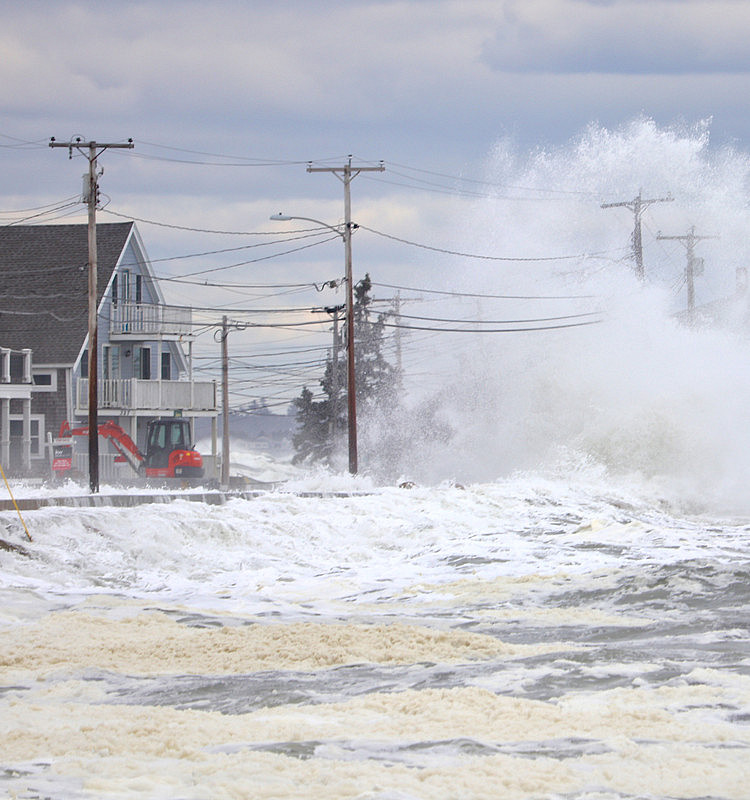of the world. But in many river deltas a further natural hazard exists: if a storm surge co-occurs with heavy rainfall, the surge can block the runoff into the sea and thereby cause flooding in the delta.
Currently, risk assessments consider storm surges and heavy precipitation independently. But as both phenomena can be caused by the same phenomenon, such events happen considerably more often that expected when assuming them being independent. In 2019, an international team of researchers lead by the University of Graz has assessed the influence of climate change on such compound flooding for European coasts. This study was now extended to coastlines worldwide and is the first to examine the global hazard of concurrent storm surges and heavy precipitation as well as to assess the influence of climate change on this hazard. The study has been published in the journal Communications Earth & Environment.
Researchers of the Department of Meteorology at Reading University (UK) and the Wegener Center for Climate and Global Chang at the University of Graz (Austria) have analysed climate model simulations of storms and precipitation together with simulations of storm surges, conducted by researchers from the European Commission's Joint Research Center in Ispra, Italy.
They found that compound flooding happens mainly in the westerlies and regions affected by Tropical storms such as hurricanes and typhoons. “This hazard will increase in the next decades in the mid- and high latitudes caused by more intense rainfall along with climate change. Particularly affected regions are, in the northern hemisphere, the US, Canada, Northern Europe, China, Korea and Japan; and, in the southern hemisphere, the south coast of South America and New Zealand.“, says Maraun.
The results of these analyses can serve as a basis for further detailed studies, that consider further local characteristics such as the exact coastline, harbours and coastal protection measures.
Publication:
E. Bevacqua, M.I. Vousdoukas, G. Zappa, K. Hodges, T.G. Shepherd, D. Maraun, L. Mentaschi, & L. Feyen. More meteorological events that drive compound coastal flooding are projected under climate change. Communications Earth & Environment, 2020. DOI 10.1038/s43247-020-00044-z.
